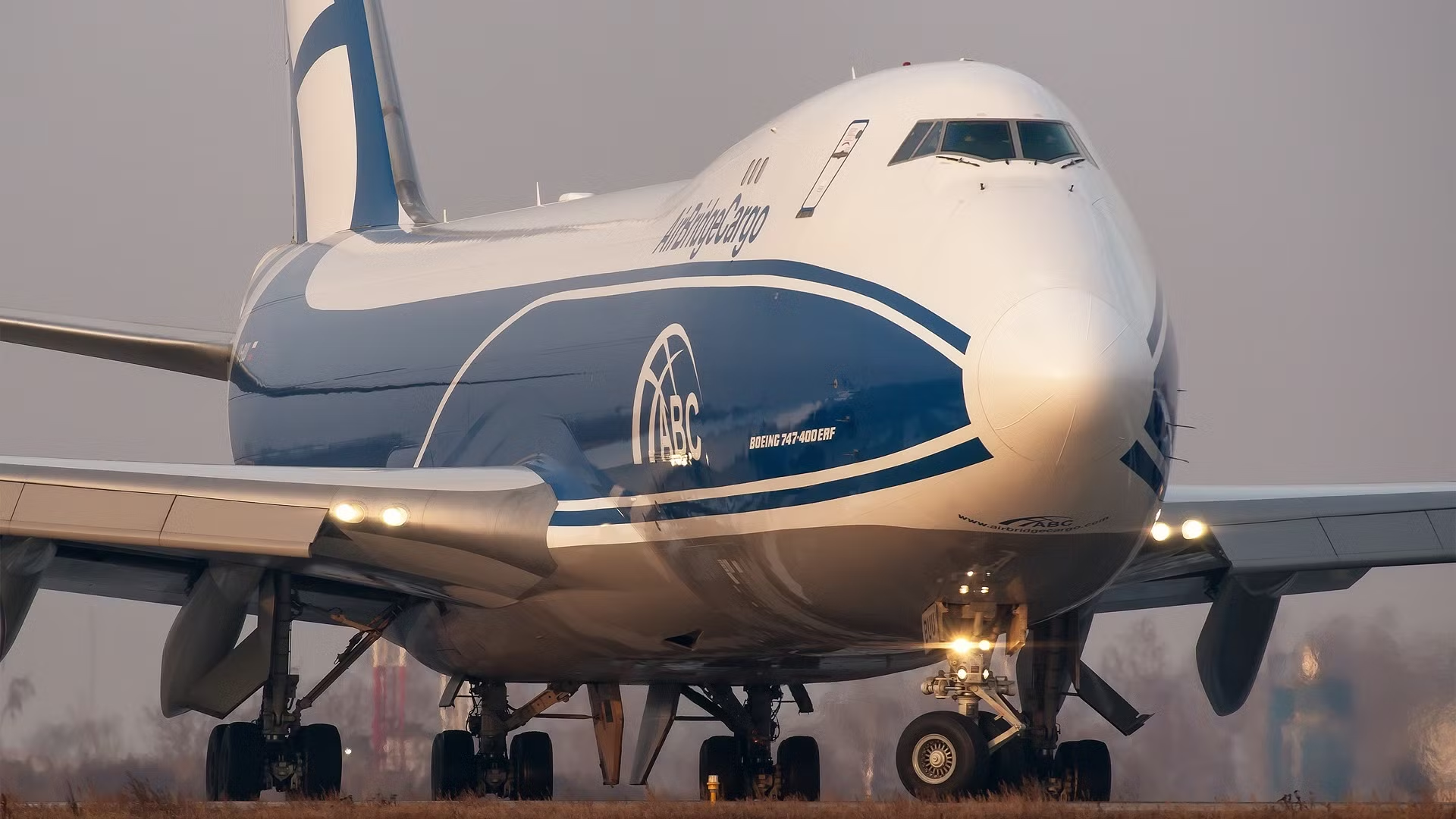World
Aeroflot to Dismantle Eight Boeing Aircraft for Spare Parts

Russia’s flag carrier, Aeroflot, is set to dismantle eight Boeing aircraft for spare parts, a move driven by ongoing global sanctions that have severely impacted the Russian aviation industry. The decision, reported by AeroTime, involves six Boeing 737-800BCFs from ATRAN and two Boeing 747-400s from AirBridge Cargo, both of which are subsidiaries of Volga-Dnepr Airlines. This initiative is valued at approximately 10 billion Russian Rubles (about $130 million) and aims to sustain Aeroflot’s passenger fleet.
Aircraft Transfer Details
The transfer of these aircraft will be facilitated through leasing agreements, utilizing resources from Russia’s National Welfare Fund. This fund, which has been bolstered by profits from oil and gas, is under increasing pressure, with economists predicting it could be depleted by 2026. The eight aircraft will be integrated into Aeroflot’s ultra-low-cost carrier, Pobeda, based at Vnukovo International Airport (VNO), and Rossiya Airlines, operating from Pulkovo Airport in St. Petersburg (LED).
While ATRAN continues operations, it retired its Boeing 737s in 2022. AirBridge Cargo, having ceased operations the same year, also adds to the urgency of this dismantling process. This marks a significant moment in Russian aviation, as it would be the first instance where passenger airlines resort to cannibalizing cargo aircraft specifically for parts.
Impact of Sanctions on Russian Aviation
Prior to the Russia-Ukraine conflict, estimates suggested that between 1,500 and 1,800 Western-made aircraft were operational in Russia. The imposition of sanctions has resulted in Russian aircraft being banned from the airspace of many countries. Moreover, all Russian carriers are now prohibited from flying in or over the European Union due to safety concerns. The U.S. Department of Commerce has also restricted American companies from servicing Boeing aircraft operated by Russian carriers.
Before sanctions, Russian airlines had straightforward access to spare parts for Boeing and Airbus aircraft. Following the sanctions, however, they lost access to new aircraft, certified maintenance support, and a comprehensive catalog of spare parts. As a result, the Russian aviation sector has resorted to alternative measures, including the practice of cannibalization—removing serviceable parts from retired or older aircraft to maintain operational planes. This strategy may provide immediate cost savings, but it risks grounding other aircraft and complicating logistics in the long term.
The ongoing aviation-related sanctions, outlined by the European Commission, include a comprehensive ban on the export, sale, supply, or transfer of any aircraft, parts, or equipment to Russia. These restrictions also prevent third-party countries from participating in such transactions.
Volga-Dnepr Airlines and Its Subsidiaries
Volga-Dnepr Airlines has been a significant player in global cargo transport for over 35 years. The airline is known for its worldwide cargo deliveries and provides maintenance, repair, and overhaul (MRO) services, trucking, and training. Currently, its fleet comprises Antonov An-124 and Ilyushin II-76TD-90VD aircraft.
AirBridge Cargo, once a subsidiary of Volga-Dnepr, was operational from Moscow Sheremetyevo International Airport (SVO) and Krasnoyarsk Airport (KJA) until sanctions prompted a suspension of its operations in 2022. The airline was forced to return most of its fleet to lessors due to the sanctions that rendered its aircraft unusable.
ATRAN remains active but has shifted to flying only the Antonov An-12BP. The airline, which has distanced itself from Volga-Dnepr, operates cargo charters across Russia and the Commonwealth of Independent States (CIS), including Armenia, Azerbaijan, Belarus, Kazakhstan, Kyrgyzstan, Moldova, Tajikistan, and Uzbekistan.
As the Russian aviation industry continues to adapt under sanctions, the dismantling of these Boeing aircraft underscores the significant challenges faced by carriers in maintaining their fleets while navigating an increasingly restrictive global environment.
-

 Top Stories3 months ago
Top Stories3 months agoTributes Surge for 9-Year-Old Leon Briody After Cancer Battle
-

 Entertainment4 months ago
Entertainment4 months agoAimee Osbourne Joins Family for Emotional Tribute to Ozzy
-

 Politics4 months ago
Politics4 months agoDanny Healy-Rae Considers Complaint After Altercation with Garda
-

 Top Stories4 months ago
Top Stories4 months agoIreland Enjoys Summer Heat as Hurricane Erin Approaches Atlantic
-

 World5 months ago
World5 months agoHawaii Commemorates 80 Years Since Hiroshima Bombing with Ceremony
-

 Top Stories3 months ago
Top Stories3 months agoNewcastle West Woman Patricia Foley Found Safe After Urgent Search
-

 Top Stories5 months ago
Top Stories5 months agoFianna Fáil TDs Urgently Consider Maire Geoghegan-Quinn for Presidency
-

 World5 months ago
World5 months agoCouple Convicted of Murdering Two-Year-Old Grandson in Wales
-

 World5 months ago
World5 months agoGaza Aid Distribution Tragedy: 20 Killed Amid Ongoing Violence
-

 World5 months ago
World5 months agoAristocrat Constance Marten and Partner Convicted of Infant Murder
-

 Top Stories4 months ago
Top Stories4 months agoClimbing Errigal: A Must-Do Summer Adventure in Donegal
-

 Top Stories4 months ago
Top Stories4 months agoHike Donegal’s Errigal Mountain NOW for Unforgettable Summer Views









